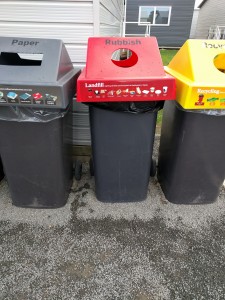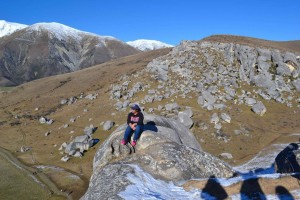For my STEP Experience, I will participated in an education abroad with the Global May New Zealand program, where I completed a linguistics course at the University of Canterbury, located in the contemporary city of Christchurch. During my three and half weeks there, I had the privilege of delving into the culture and history that delineate the rich linguistic landscape of New Zealand, as well as explore the breathtaking scene in and around Christchurch.
From this trip, I’ve come to understand several things. In no particular order:
- Be kinder to the earth – there’s only world for all of us to share.
- Friendliness should not be a difficult or even conscious decision – it should be a way of life.
- Relax more – being laid back isn’t a crime; in fact, it’s much nicer way to spend your days.
- Respect indigenous species – they have so kindly welcomed you into their land.
- Explore more – nature is not as scary as you would think.
- Leave your comfort zone – that is how you will grow and learn the most as an individual.
One of the first things you’ll notice about New Zealand is how much cleaner the air feels and smells. A few days in, I realized how eco-friendly New Zealand is, which is funny because they probably weren’t a very wasteful country to begin with (unlike the United States). I guess kiwis (the colloquial term for a New Zealander) are just friendly people to other people, but even to Mother Nature. Speaking of friendliness, kiwis really do live up to their reputation of being extremely friendly. And extremely laid back, too, judging from the vague closing times for establishments, to not even wearing shoes around campus. You will also notice the culture of New Zealand’s indigenous population, the Māori people, seep into various aspects of the country’s culture. The people of New Zealand are much more celebratory of their native people than the United States is. I was initially afraid of leaving my comfort zone to expose myself to this culture shock, but New Zealand was a culture shock in all the right ways.
Their intricate trash system separates bins for recycli ng, trash, and organics, all neatly color-coordinated. The flushing system for toilets have different buttons to release different amounts of water for the purpose of water conservation. They don’t have paper towels in public restrooms – either a reusable towel sterilized by UV light or air dryers. And I think the biggest difference was the fact that people actually abide by those systems in place, for the most part. I find many Americans, would find the intricate systems for environmental protection both cumbersome and beneath them; many people in my dorm are too lazy to even walk the extra 10 feet to the recycling bin to throw out recyclable waste.
ng, trash, and organics, all neatly color-coordinated. The flushing system for toilets have different buttons to release different amounts of water for the purpose of water conservation. They don’t have paper towels in public restrooms – either a reusable towel sterilized by UV light or air dryers. And I think the biggest difference was the fact that people actually abide by those systems in place, for the most part. I find many Americans, would find the intricate systems for environmental protection both cumbersome and beneath them; many people in my dorm are too lazy to even walk the extra 10 feet to the recycling bin to throw out recyclable waste.
The immediate, non-hesitant welcoming of my homestay mother, Margaret, almost threw me aback. I’m just not used to making myself feel at home anywhere other than my own home or dorm room; but I found that the unwavering kindness and genuine nurturing attitude to make me feel totally comfortable in a new place. This attitude that all kiwis seem to share probably began with the native the Māori, who graciously welcomed European settlers into New Zealand in the mid-1800s. One first field trip showcased that – Willowbank.
Willowbank is a wildlife reservation that included a “Māori cultural experience,” and it easily became one of my favorite things we did on the entire trip. It started with walking through a conservatory for the endangered animals of New Zealand, almost like a miniature zoo, where we got to see the much celebrated (and much endangered) national bird, the kiwi. But what came afterwards was even more spectacular – the Hongi & Hāngi from the Māori people. That was one of the coolest experiences of my entire life; it was such a sacred and traditional greeting from the native people. The Hongi is a traditional greeting by the Māori people, where two people touch their noses and foreheads together, symbolizing sharing the same breath and by extension, the same land. The Hāngi was a traditional Māori four-course meal (named after the way they prepare the food, typically for special occasions), which we had after our welcoming ceremony; goodness, that was some of the best food I’ve ever had. I would kill to have Hāngi food again. I think the biggest takeaway from this very special and ancient New Zealand experience is that New Zealand is much more celebratory of their indigenous population than the United States is. I’m a firm believer that the only true Americans of our country are the Native Americans, and the rest of us are immigrants. The US could learn a thing or two from NZ.
One thing I didn’t expect this trip to teach me was how much I love hiking. I’m don’t live for the outdoors – I’m a sheltered girl from the suburbs, and I am happy sitting at home watching Netflix, thank you very much. Plus, I don’t think I’m the only one who finds walking uphill to be repulsive – and I’m not going to lie, my body ached for a day or two after some of our uphill treks. But they were oh so worth it. Those  views – those views you only see on postcards, and then realize that postcards never did those panoramas justice. I would do the painstaking climbs all over again in a heartbeat – but I’ll admit, hiking in New Zealand has definitely spoiled me. One of our trips was to Castle Hill, which you might recognize as the filming location of the final battle scene from The Chronicles of Narnia: The Lion, the Witch, and the Wardrobe. I don’t think words are needed for this.
views – those views you only see on postcards, and then realize that postcards never did those panoramas justice. I would do the painstaking climbs all over again in a heartbeat – but I’ll admit, hiking in New Zealand has definitely spoiled me. One of our trips was to Castle Hill, which you might recognize as the filming location of the final battle scene from The Chronicles of Narnia: The Lion, the Witch, and the Wardrobe. I don’t think words are needed for this.
And lastly, leaving the comfort zone. I’m the youngest in my family, and both my parents work from home, so I’ve really had any room or opportunity to branch and grow as an individual. And to be completely honest, I was totally fine with that. I was fine not rushing into independence and responsibility, and staying coddled in the safety, comfort, and familiarity of my home. But I knew it was doing nothing good for me. And that’s why this trip was more than to quench by want/need for travel, but it was an act of defiance. It’s interesting being a child of Indian immigrants – the culture of India is extremely different from the culture of the United States. India is a collectivist society, with a heavy emphasis on the fluid progression from adolescence to adulthood, and always having family to fall back on. In the US, we have an individualistic society – there’s a mentality of “figuring things out on your own.” And I can’t really say it does or doesn’t work – it just is. And that puts me in flux, because I have parents who want to coddle me in a society that tells me to grow up, so I feel like I’ve never really learned how to do anything on my own. Which is why this trip was so important and enlightening for me – I did something for myself. Something really important – taking a pretty sizable step in becoming (more) independent. I am eternally grateful to my parents for being so readily supportive of me my entire life. But whether it’s a good thing or not, I need to be on my own more.
—
This experience was also documented on the TEDxOhioStateUniversity blog.


It sounds like you definitely went outside your comfort zone to learn more about yourself and how to be sustainable with earth’s resources.